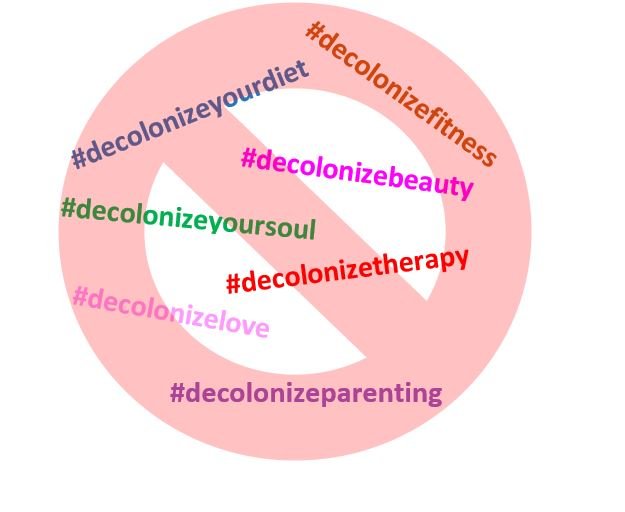What is decolonization, why is it important, and how can we practice it?
Time Commitment: 45-60 minutes
Why This Matters:
The introductory page of this toolkit states that we all have a responsibility to each other. Interdependence challenges us to recognize our embeddedness in relationships; to acknowledge the way that we are inherently part of communities, networks and systems and to question how we know what we know, fostering our capacity to operate ethically within the communities and systems of which we are part and which support us.
The colonial project, ongoing and worldwide in its scope, affects communities far and wide. Across the globe, Indigenous communities are fighting to regain access to their land, grappling with the consequences of borders drawn through the colonial project, or fighting to protect land that is constantly threatened by forces looking to profit off of natural resources.
Decolonization is work that belongs to all of us, everywhere. It asks us to think about our relationship with Indigenous lands that colonizers have unjustly claimed, re-defined and repurposed all over the world. It asks us to embrace responsibility as opposed to accepting fault. Lastly, decolonization is a path forward to creating systems which are just and equitable, addressing inequality through education, dialogue, communication, and action.
Diving in Part 1 - What is Decolonization?
Decolonization is about “cultural, psychological, and economic freedom” for Indigenous people with the goal of achieving Indigenous sovereignty -- the right and ability of Indigenous people to practice self-determination over their land, cultures, and political and economic systems. Colonialism is a historical and ongoing global project where settlers continue to occupy land, dictate social, political, and economic systems, and exploit Indigenous people and their resources. It is a global endeavor. For the purposes of clarity, this series will focus primarily on decolonization in the context of North America and Canada, although the movement to decolonize expands far beyond these national (settler-imposed) borders.
In this 13 minute TED Talk introducing decolonization by Nikki Sanchez, an Indigenous media maker, environmental educator, and academic, Sanchez invites us to think about the territories we inhabit, specifically unceded, never-surrendered and occupied land. She does this in part by pushing back on historical amnesia, a phenomenon whereby settlers choose not to recognize the genocidal role of colonialism. Sanchez also centers Indigenous peoples’ history and their continued resilience against erasure, extraction, and oppression. We each have a responsibility to push back on colonial narratives. As Sanchez points out at 7:03 in the video, “[t]his history is not your fault. But it is absolutely your responsibility.”
TED Talk: Decolonization is for Everyone
Reflection Question:
In the very beginning of the video above, Sanchez prompts the audience to think and learn about the land that they are on and the Indigenous people who have long stewarded that land. Do you know whose land you travel, work, and live on? If not, please spend some time exploring this crowd-sourced map before moving on. And don’t stop there! Try researching about the Indigenous communities you find; what do you learn?
background image of a map. the focus of the image is a red pin point that reads "you are here on Native land."
Image: Print by Katrina Brown Akootchook and photograph of the print by Berdell Paninguna Akootchook.
Diving in Part 2: Critiquing the Buzzword
Hashtag Decolonize, graphic by Nedra Sandiford
When we misunderstand words, we misunderstand each other. As with many terms hashtagged, tracked, commercialized and weaponized, decolonization has suffered from a distortion, casually thrown around online, in the media, in academic discourse, and in social justice spaces without nuance. This distortion causes people to either dismiss the term entirely, or engage with it in a way that decenters the Indigenous narrative that is so central to the movement. Eve Tuck (Unangax̂, Alaskan Aleut Community), Associate Professor at the University of Ontario, and K. Wayne Yang, professor at UC San Diego and Provost at John Muir College, both speak to distilling decolonization’s true meaning. In Decolonization is Not a Metaphor Tuck and Yang argue that the language of decolonization is often superficially adopted in moves of “settler innocence” -- moves that perpetuate ideas that settlers have a reduced or no responsibility in colonizing Indigenous land and people.
two people of color standing in the Egyptian galleries of an art museum holding a red banner that reads "how was this acquired? by whom? for whom? at whose cost? #decolonizethisplace"
Above image: Decolonize this Place activists stand in the Egyptian galleries of an art museum with a banner questioning and protesting the museum’s continued ownership and display of artifacts. (photo by Jasmine Weber of Hyperallergic)
According to Tuck and Yang, a common move of settler innocence occurs when people rely too heavily on the notion to ‘decolonize your mind,’ thinking, or knowledge. This can include efforts to read more Black, Brown, and Indigenous writers, for example. Decolonial curriculum and thinking can, indeed, be a substantial part of the movement. It is a powerful tool for deconstructing colonial influences on knowledge and education. However, they note that while this can feel radical and transformative, it is not the sole or final step in decolonization.
We cannot only dedicate ourselves to thinking about decolonizing, we must act to decolonize. Additionally, efforts to indigenize (appropriating Indigenous approaches to life or even falsely claiming Indigenous identity) do not contribute to decolonization, but further colonize Indigenous knowledge and identity. Decolonization calls for decentering the narrative by which settlers romanticize Indigenous beliefs and surface culture (indigenization). It calls instead for deconstructing settler-imposed systems that continue to oppress Black, Brown, and Indigenous people. Moves of settler innocence domesticate decolonization’s demands of undoing colonialism, eliminating its gendered and racialized hierarchies, and establishing Indigenous sovereignty. The danger of the decolonization metaphor (such as ‘decolonize your mind’) is that it prevents us from actually decolonizing. “It recenters whiteness, it resettles theory, it extends innocence to the settler, it entertains a settler future” rather than recentering Indigenous futures and sovereignty (Tuck and Yang 2012, 3, 35). A settler future is one where settlers can continue to benefit from colonialism and perhaps be minimally aware of their settler privileges. A settler future does not encourage acting against colonization, through, for example, giving back Indigenous ancestral lands. Focusing instead on securing an Indigenous future necessitates substantive decolonial actions -- actions we must explore and learn to implement. Framing who decolonization work is about and for is an integral step in moving forward with effective decolonial action.
photo shows the back of a person standing in front of an outdoor fountain filled with red water. the person is holding a megaphone and wearing a jacket with a patch that reads "land back" and has a bird symbol. the fountain is surrounded by people.
Above Image: Images by @mikegraeme @sortome.photography & @colinsmithtakespics for Photographers Without Borders
In the following pages in this decolonization series we will learn more about land restitution, including the different ways that we can work towards it as well as other decolonization efforts.
Debrief Activity: We can understand settler colonialism as the continued occupation, exploitation, and destruction of land traditionally stewarded by Indigenous people by countries in what is considered the Global North (countries that have amassed their wealth and built their development through said occupation). This process has taken place through hundreds of years of oppression and genocide of Indigenous peoples and is perpetuated by structures of white supremacy, heteropatriarchy, racism, and capitalism. Settler colonialism is ongoing and can appear in various ways in each of our lives. Where do you see settler colonialism’s influence around you, in your day-to-day life? How does it affect you? Please take five to ten minutes to reflect on these questions.
Page completion - outcomes
Now that you have completed this page and the readings, videos, and activities within it, you should have strengthened your understanding of:
What decolonization is and its purpose in deconstructing historical and contemporary colonialism.
The ways in which decolonization language can be distorted and its critique.
Next pages:
How can we practice decolonization? What makes an initiative decolonial?
Citations
Cox, Alicia. “Settler Colonialism.” Oxford Bibliographies, 26 July 2017, https://www.oxfordbibliographies.com/view/document/obo-9780190221911/obo-9780190221911-0029.xml
O’Dowd, Mary Frances and Robyn Heckenberg. “Explainer: what is decolonisation?” The Conversation, 22 June 2020, https://theconversation.com/explainer-what-is-decolonisation-131455
Sanchez, Nikki. “Decolonization Is for Everyone | Nikki Sanchez | TEDxSFU.” Youtube, uploaded by TEDx Talks, 12 Mar. 2019, https://www.youtube.com/watch?v=QP9x1NnCWNY
Shringarpure, Bhakti. “Notes on Fake Decolonization.” Africa Is a Country, africasacountry.com/2020/12/notes-on-fake-decolonization.
Tuck, Eve and Yang, K. Wayne. “Decolonization is not a Metaphor.” Decolonization: Indigeneity, Education & Society, vol. 1, no.1, 2012, pp 1-40, retrieved from: https://clas.osu.edu/sites/clas.osu.edu/files/Tuck%20and%20Yang%202012%20Decolonization%20is%20not%20a%20metaphor.pdf
Citation for this Page:
Belfi, E. & Sandiford, N. (2021). Decolonization Series Part 1: Exploring Decolonization. In S. Brandauer and E. Hartman (Eds.). Interdependence: Global Solidarity and Local Actions. The Community-based Global Learning Collaborative. Retrieved from: https://www.cbglcollab.org/what-is-decolonization-why-is-it-important



